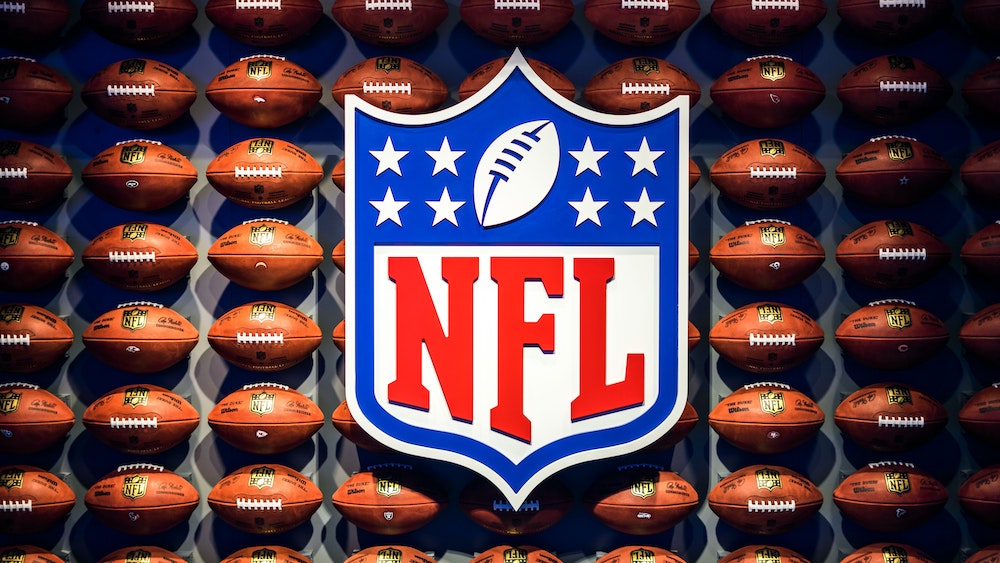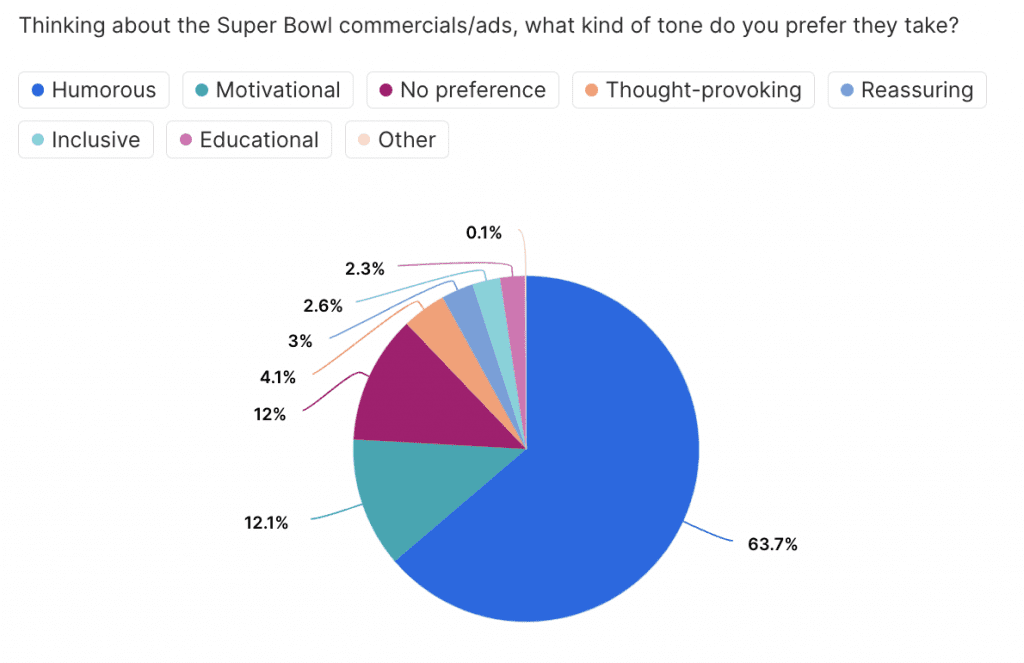Super Bowl viewers want brands to keep their commercials funny and politics-free

Our new research explores how Americans will take in this year’s biggest sporting (and advertising) event – Super Bowl LVI.
With last year’s Super Bowl clocking in at 96 million viewers, the lowest since 2007, our new research finds the majority of Americans (62%) plan to watch the game this year. Just 13% of respondents say they “definitely” will not watch the game.
In further welcome news for the NFL and brand sponsors, the top reason cited by consumers for tuning in this year is excitement in watching the game itself (36%), followed by the Super Bowl commercials (18%), and the halftime show (17%).
As more and more US states legalize sports betting, a small number (4.5%) say that gambling on the outcome of this year’s game is what they’re looking forward to most.
On the Attest dashboard you can see the full data, conduct consumer profiling research, and break down the numbers by demographics using the filters on the right-hand side.
How people will watch Super Bowl LVI
The new research also finds that the majority of Americans (57%) will rely on their trusty TV to enjoy the game this year. However, over a quarter (27%) will stream it live instead, pointing to increasing numbers of Americans preferring to watch the big game online, just over a decade since the NFL first broadcasted the game over the internet. Incredibly, a tiny number of people (1%) will record the game and watch it at a later stage.

What Americans want from this year’s Super Bowl ads
Bolstering the insights from our recent consumer trends research, the American public wants to laugh in 2022, likely influenced by the ongoing pandemic and economic uncertainty.
This escape from reality also extends to their expectations for this year’s Super Bowl commercials. The vast majority (63%) want ads to be humorous, far behind 12% wishing to see motivational messages and just 4% hoping for thought-provoking commercials.

Outside of brand messaging, celebrity-driven ads are what most interests people this Super Bowl year (29%), followed by commercials that support a social cause (14%). Conversely, however, 46% of Americans say they don’t like or appreciate Super Bowl ads taking a political tone.
Meanwhile, with brands stumping up a whopping $6.5 million for a 30-second TV ad during the game, the research finds that drink and food brands achieve the biggest share of mind amongst consumers. In fact, Budweiser takes home the trophy as the number one brand that consumers most associate with Super Bowl advertisements, followed by Doritos and Pepsi.
The Omicron effect on Super Bowl celebrations
However, the latest surge in the Omicron variant appears to have factored heavily into how the majority of people will watch the game this year.
Despite our research finding that 41% of Americans feel “comfortable” (versus 31% not comfortable) attending a Super Bowl party, just 14% say they plan to attend a large in-person gathering. Instead, the majority (55%) say they will watch the marquee matchup at home with members of their household only, while 15% will even view the game alone. Even more starkly, just 3% plan to take the spectacle in at public venues, like bars.
For those planning a Super Bowl soiree, the vast majority of people (48%) plan to go to the store and make their own food spread ahead of the football feast. This is followed by 17% who are “not sure”, 10% who will order from a food-delivery app and 8% who will order directly from a local restaurant.
As the Omicron variant surges stateside, consumers are turning to one of the most tried-and-true ways to cope – humor. This year, the majority of Americans aren’t looking for Super Bowl advertisements to motivate them or get them thinking, but to simply make them laugh.
With a never-ending cycle of bad news, political agendas will also likely fall on deaf ears, as consumers show signs of needing an old-fashioned good time on game day.
Jeremy King, CEO and Founder of Attest
Tell us what you think of this article by leaving a comment on LinkedIn.
Or share it on:
